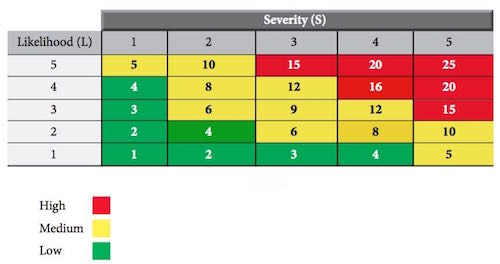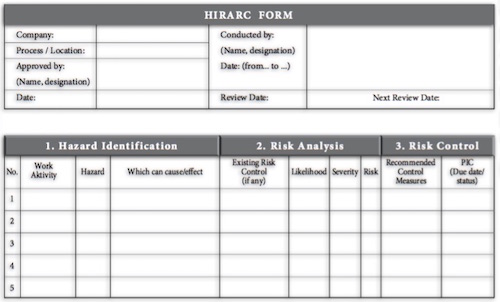Chemical Receipt and Storage- Chemicals should be identified at reception and kept in a certain appropriateness to avoid any unwanted reactions and to reduce the risk of chemical accidents.
Acceptance of Chemicals
- Avoid buying unnecessary chemicals or excessive quantities.
- Keep chemicals received with Chemical Safety Sheet (MSDS).
- Receive only the chemicals stored in good container and labeled.
- Register your details and the date of receipt expiry date (for some chemicals) in inventory information.
The following information should be available in inventory list;
- Chemical name.
- Date of manufacture and date of receipt.
- The nature of chemical substances such as flammable, abrasives and so on.
- Additional safety information as they need to be handled in air emissions or the need to use personal protective equipment.
Chemical Storage Room
- Store room for storage of chemicals should have good ventilation.
- Provide designated areas to accommodate certain classes of chemicals.
- Chemical storeroom should be checked regularly to ensure there are no leaks or spills.
- Chemical storeroom must be placed in a location accessible to the vehicle, whether for delivery or emergency.
- Chemical store room must be equipped with appropriate fire extinguishers, personal protective equipment and communications systems which can be used in an emergency.
- Store room should be close to the laboratory to reduce the risk of accidents during the distribution of chemicals.
- The level of safety of the storeroom, such as electrical wiring, ventilation systems etc. should be checked at least once a year.
- Storeroom can not be used as preparation or repackaging room chemicals.
- Storeroom operation must be performed by a particular employee.
- Chemical storage of flammable liquids cabinet must not exceed 227 liters (60 gallons) of liquid with a flash point less than 60 ° C (140° F) and not more than 454 liters (120 gallons) of liquid with a flash point above 60 ° C (140° F).
- Employees who take care of the chemicals store responsible for ;
-Segregate chemicals according to compatibility.
-Keep a separate record of the chemicals that have an expiration date.
-Keep a separate record of the chemicals that have an expiration date.
-Check the label on a regular basis and make sure label is not damaged.
- Containers for filling spilled chemicals should be available in stores in the event of a chemical spill.














